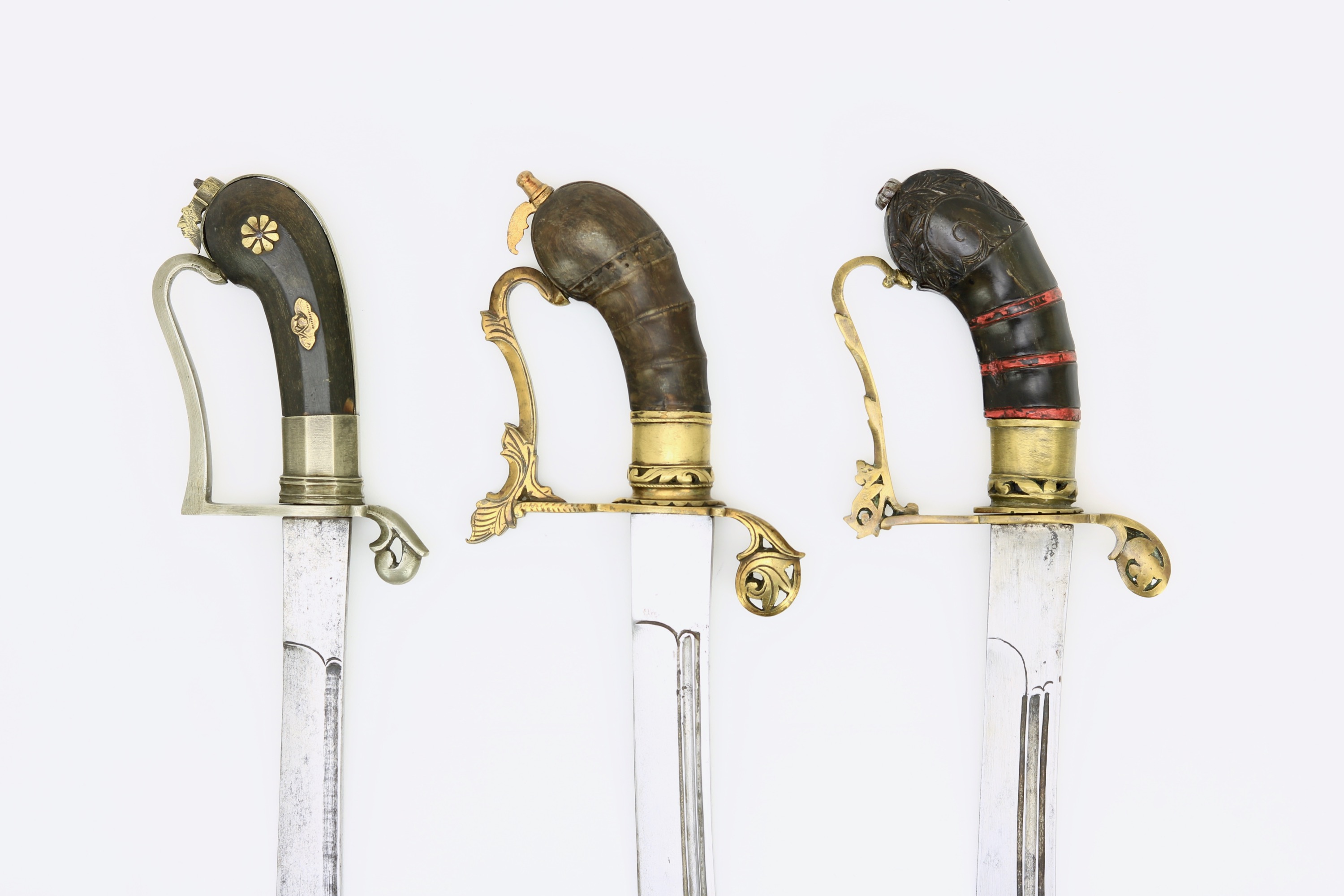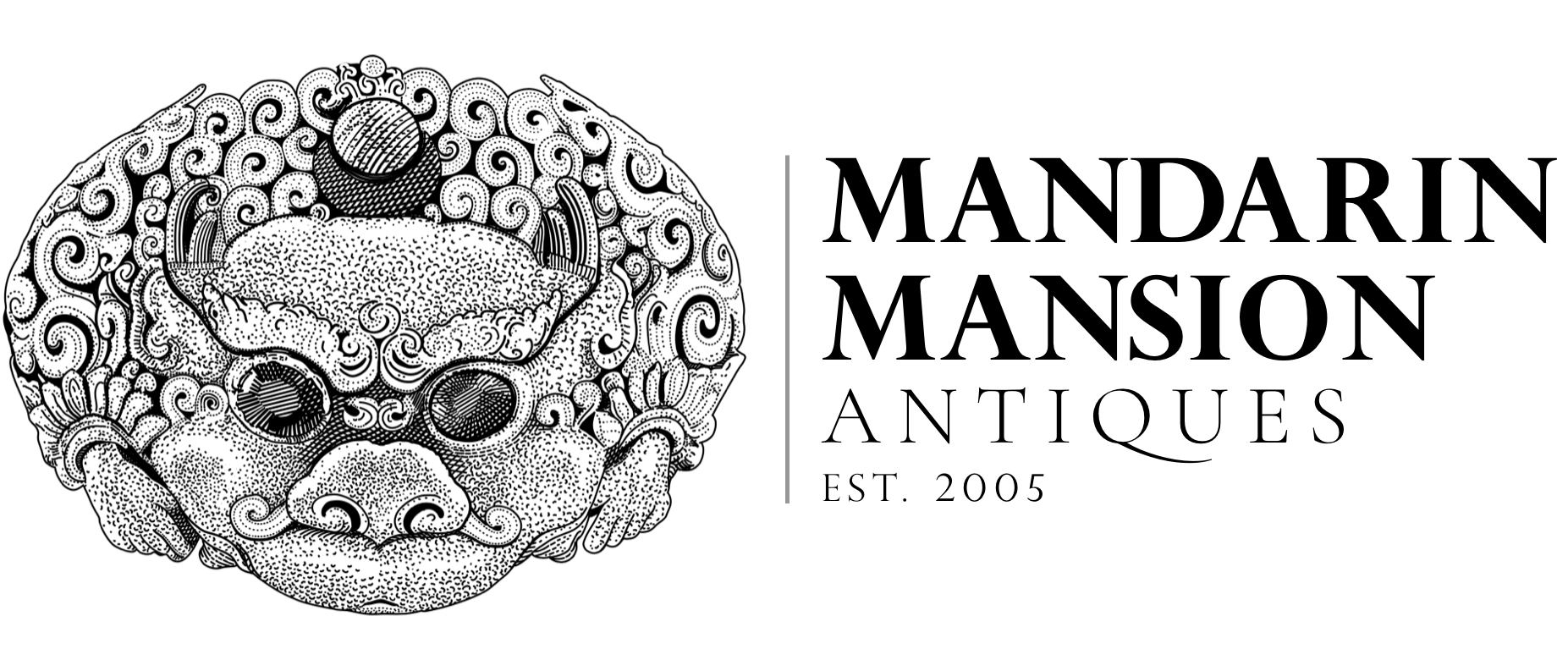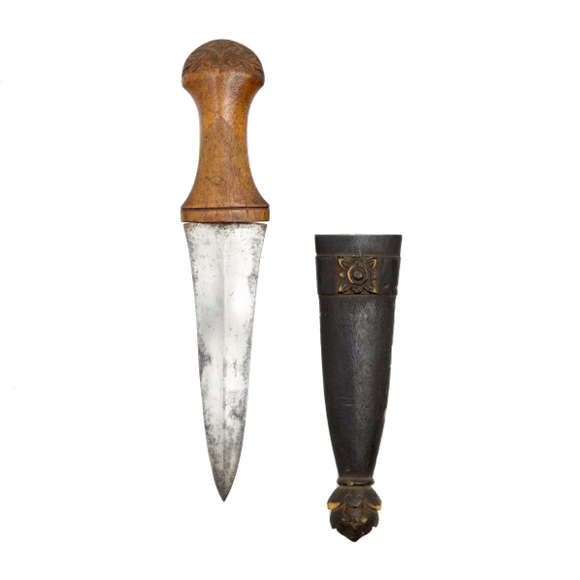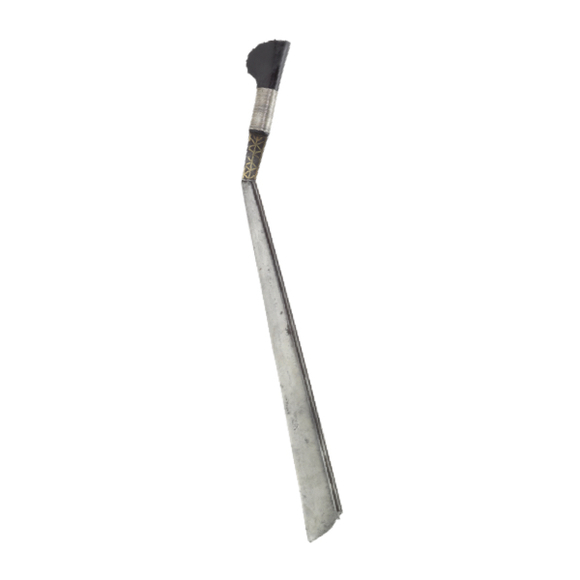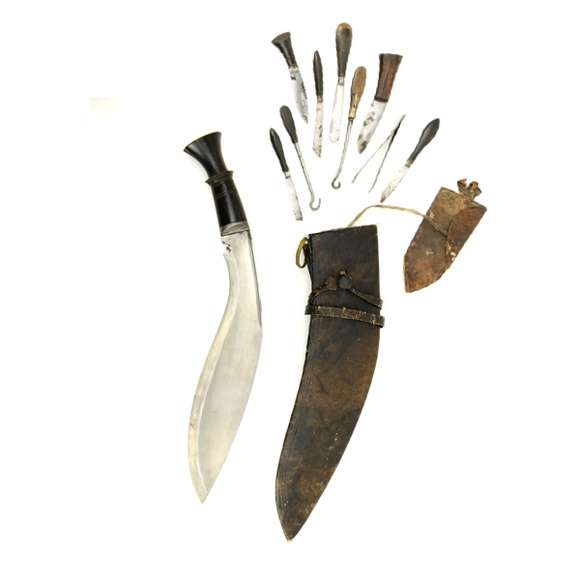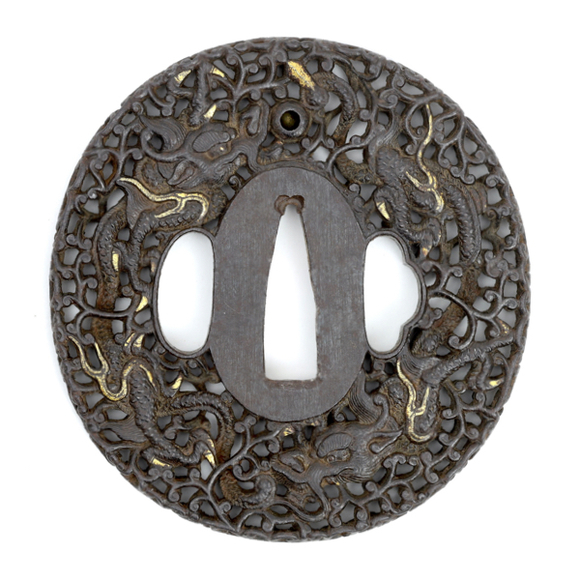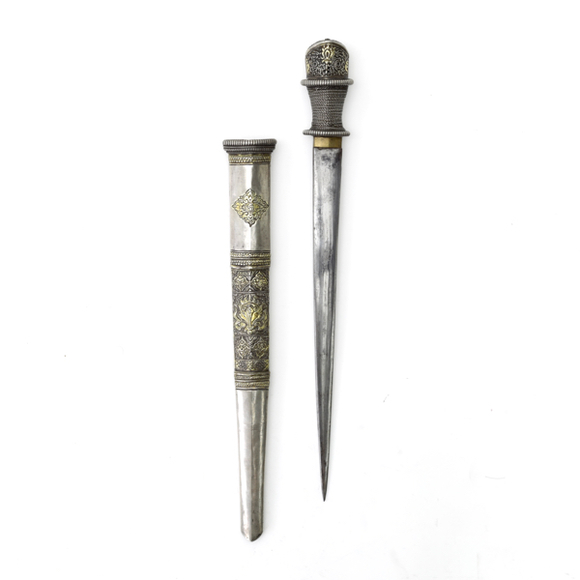Language: Indonesian
Source: George Cameron Stone, 1934.
Description
Parang nabur is a widely used name for a curved saber from the southern part of the island Borneo.
It was primarily used by Malays living in that part of the island, during the Sultanate of Banjar that lasted until 1905. Some also ended up in the hands of Dayak chieftains, probably through trade.
While collectors in the English-speaking world mostly know the weapon as parang nabur in following of Stone's Glossary, it is locally known as beladah or belabang.1
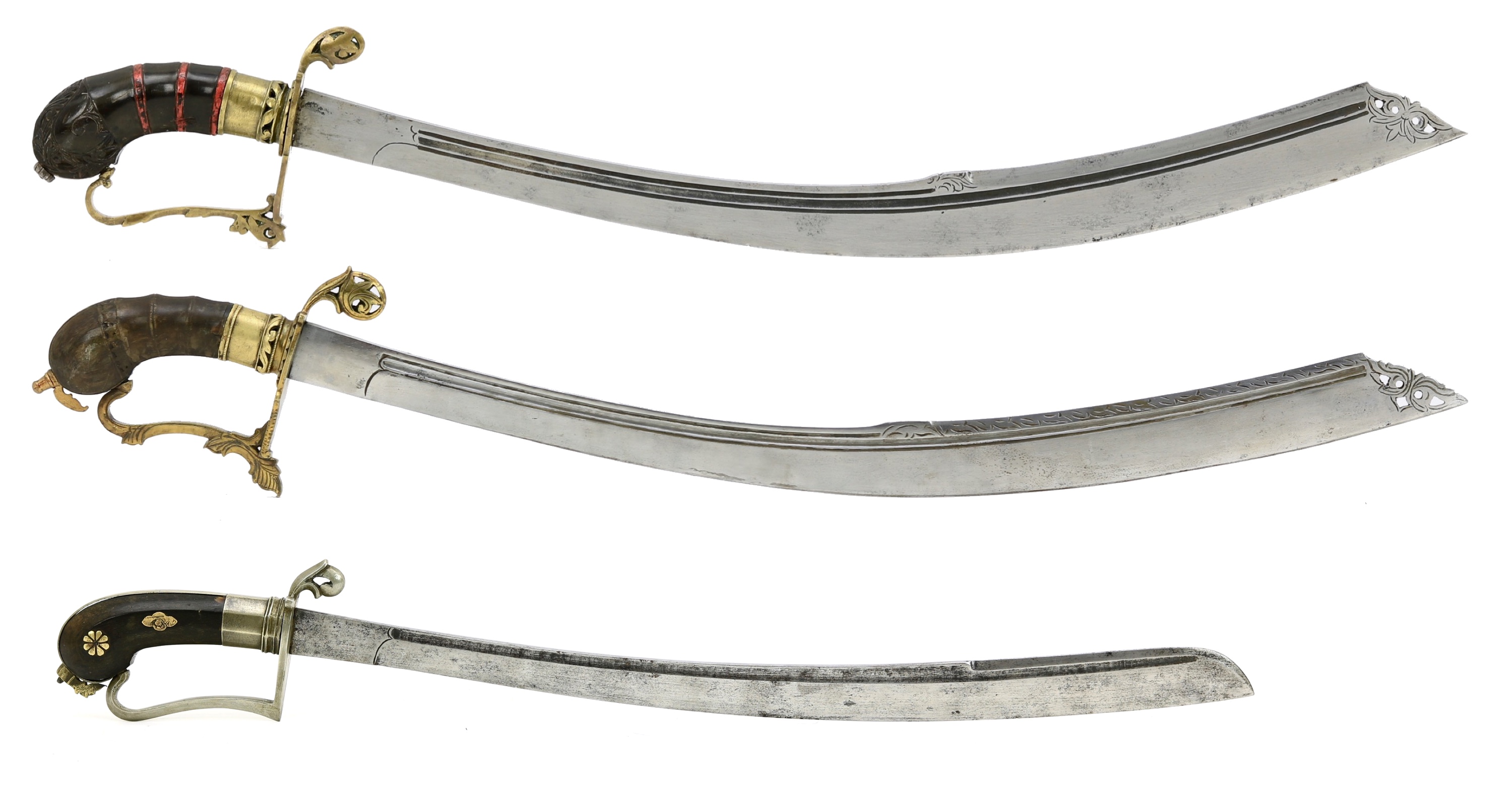
Some typical examples of the parang nabur.
Sold by Mandarin Mansion in 2020.
Many parang beladah combine a curved saber blade with both local and Islamic design features, often with a sharp backedge, with a handle that is strongly inspired by Dutch and English naval cutlasses.
Notes to introduction
1. George Cameron Stone; Donald J. LaRocca; A Glossary of The Construction, Decoration and Use of Arms and Armor: In All Countries and In All Times. Courier Dover Publications, 1999. Page 482. Also see Albert G. van Zonneveld, Traditional Weapons of the Indonesian Archipelago. Zwartenkot Art Books, Leiden. 2001. Page 99.
